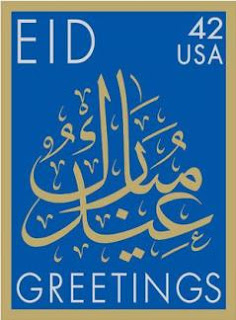 Ramadan’s Spiritual Discipline
Ramadan’s Spiritual DisciplineBy Mike GhouseFrom the moment we are born to the last rites of our life and every moment in between is laden with rituals, though some of us may deny it. Whether we go to the gym, eat our food; go to sleep, wear clothes, drive some place, in our intimate moments, or picking that phone up, we follow rituals.
Discipline is necessary to do things on time, managing personal relationships, driving to a destination or keeping within budget to achieve the goals; the result is worth the discipline to most people. When joyous, whether we are a theist or not, we have to express that sentiment, otherwise a sense of incompleteness lingers in our hearts.
Every faith is composed of a set of unique rituals to bring discipline and peace to human life. Fasting during Ramadan is one of the five key rituals that Muslims around the world observe.
Ramadan is the ninth month of the Islamic lunar calendar and is generally observed with a ritual precision; it is an annual training or a refresher. It requires one to abstain from food, drink, intimacy, ill will, ill talk, ill actions or any temptations from dawn to dusk, every day for a month. One has to rise above his or her baser desires. Islam gifts this month to its followers to inculcate discipline to bring moderation in their daily lives. Twenty-five hundred years ago, Buddha, the enlightened one taught that human suffering is caused by unrestrained desire to own and had recommended a middle path, and the same recommendation was made by Prophet Muhammad 1,400 years ago.
Although Ramadan is popularly known in the West for its culinary delicacies and fancy Iftaar (ceremonial breaking of fast at sundown), the spirit and intent of Ramadan lies in a human transformation in a month-long inner spiritual journey of finding oneself in tune with spirituality.
God has no need for the hunger or thirst of someone who hurts others, violates their dignity or usurps their rights, said Prophet Muhammad (PBUH). The fasting of the stomach must be matched by the fasting of the limbs. The eyes, ears, tongue, hands and feet all have their respective fasts to undergo. The tongue’s temptations, for example – lies, backbiting, slander, vulgarity and senseless argumentation – must be challenged and curbed to maintain the integrity of the fast.
Consciousness of behavior and vigilance over action are the most profound dimensions of fasting: the fasting of the heart focuses on the attachment to the divine. That is when Ramadan really becomes a source of peace and solace, just as Christmas goes beyond the rituals to bring forth kindness, charity and caring.
True fasting is self-purification; and from this, a rich inner life that bring about values such as justice, generosity, patience, kindness, forgiveness, mercy and empathy – values that are indispensable for the success of the community.
Knowing about hunger is different from knowing hunger. Empathy is not an intellectual equation; it is a human experience. Our hardness of heart often springs from our distance from the human condition of others. The poor, sick, disenfranchised, oppressed – we rarely walk a mile in their shoes, not even a few steps. “Rest assured,” cautioned one teacher, “if you do not taste what it feels like to be hungry, you will not care for those who are.”
For fasting to be truly universal, its benefits must extend beyond the fraternal ties of Muslims and must extend to forging a common humanity with others. Fasting is meant to impart a sense of what it means to be truly human, and its universality is reflected by its observance in Baha’i, Buddhist, Christian, Hindu, Jain, Jewish, Sikh, Zoroastrian and other faiths.
Ramadan will come and go with such stealth that we cannot but be reminded of our mortality. What is it that we value and why? Habits, customs, even obsessive behavior like smoking can be curtailed with relative ease in the face of a higher calling.
The article:http://newsweek.washingtonpost.com/onfaith/guestvoices/2009/08/ramadans_spiritual_discipline.html
Mike Ghouse is a Speaker, Thinker and a Writer. He is a frequent guest on talk radio and local television network discussing Pluralism interfaith, political and civic issues. He presides the Foundation for Pluralism and is a founder of the World Muslim Congress with a simple theme: Good for Muslims and good for the world. His comments, news analysis and columns can be found on the Websites and Blogs listed at his personal website www.MikeGhouse.net. Mike is a Dallasite for nearly three decades and Carrollton is his home town. He can be reached atGhousemike@gmail.com
#
#
